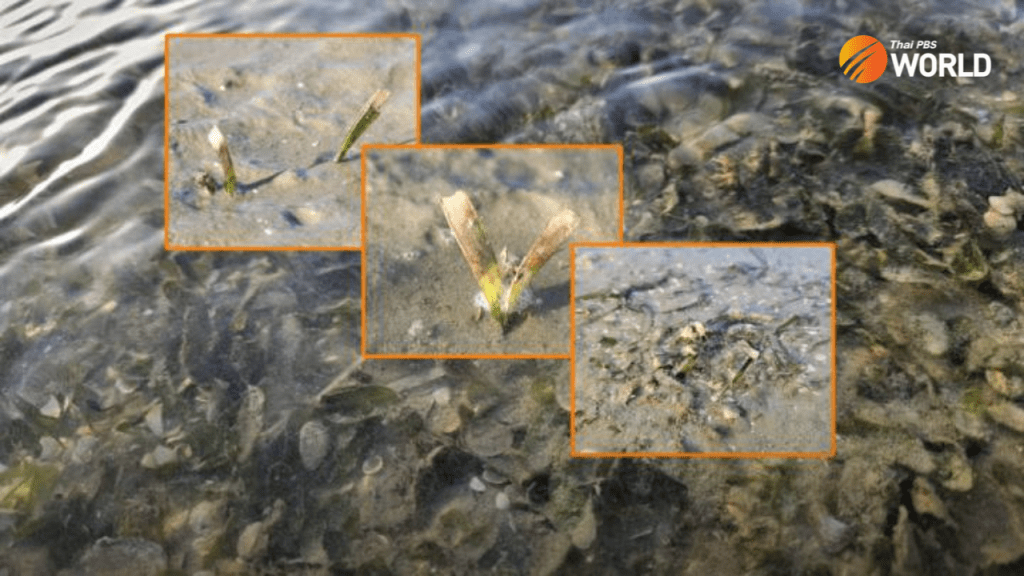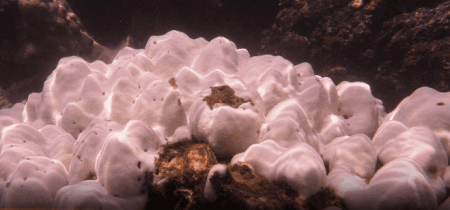The temperature of the water in the Gulf of Thailand and the Andaman Sea has caused a rare event, known as “steamed” grass, indicating that seagrass, the primary food source for dugongs, is not surviving the increase in sea temperatures.
As a result, this is making the mammals move away from their usual habitats to find new places to eat, as stated by Dr. Thon Thamrongnawasawat, vice dean of the Faculty of Fisheries at Kasetsart University.
An expert in marine life, Dr. Thon mentioned that a recent examination of seagrass in the Gulf and the Andaman, carried out by a research unit from the Faculty of Fisheries and the seagrass crisis committee, indicates that seagrass in the Andaman Sea, near Trang and Krabi provinces and parts of Satun, is being severely impacted by global warming, resulting in unusually low tides and warmer seas.
Similar issues have been observed in Phang-nga and Trat provinces, although seagrass in the Gulf, near Prachuap Khiri Khan down to Pattani, remains mostly healthy, he noted.
He clarified that the increase in sea temperatures causes the sea floor to warm up, leading to the “steamed” grass event, which is a new occurrence in Thailand.
He also mentioned that the investigation indicates dugongs are starting to spread out, instead of eating together in a large group, to find new places to eat where seagrass is abundant, such as around Phuket.
Dr. Thon stated that this is a difficult issue to address, because the seas are getting warmer every day and the problem is worsening due to global warming, though authorities are attempting to restore the seagrass.









